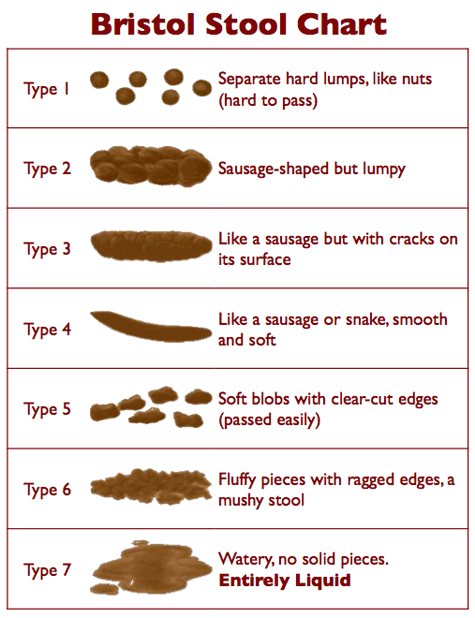
The Benefits of Intermittent Fasting and the Fasting Mimicking Diet
The process of fasting involves abstaining, or partially abstaining from food. Prehistoric humans lived in a state of intermittent fasting, eating only when food necessary for their survival became available.1 In the last decade more and more researchers have started to study the health benefits of fasting on the human body and discovered numerous beneficial effects on health conditions like diabetes, cardiovascular disease, cancer, antioxidant stress, cognition, obesity and weight loss.1,2 It has also shown positive effects on delaying aging and promoting longevity.3
Research is available on fasting techniques like caloric restriction, dietary restriction and intermittent fasting (IF), where IF proved to have the best outcome on health and longevity.1 During intermittent fasting food is consumed within a certain time window, while refraining from eating for the remaining time.2 Some of the most popular intermittent fasting methods are:2,3
- 16/8 method – eating window of 8 hours and a fasting window of 16 hours
- 5:2 method – alternate day fasting where calories are restricted for 2 days of the week
- Time restricted feeding – eating a standard number of calories within a restricted timeframe
- Periodic fasting – abstaining from food and caloric beverages for continuous days
- Fasting mimicking protocol – special diet developed by Prof. Longo that tricks the body into thinking that it is in fasting mode
How does fasting work?
The proposed mechanism by which fasting modulates its health effects is the possible reprogramming of metabolic and stress resistance pathways and triggering processes like ketogenesis, autophagy and lipolysis.4 When ketogenesis is triggered, the body starts producing ketones from stored fat as a source of energy when glucose has been used up. The body goes into ‘fat-burning mode’ and gives weight loss efforts a boost.2
“When I don’t eat I can’t make bad decisions about what I eat.”
– Kinder Fayssoux
The fasting mimicking protocol
Prof. Longo and colleagues investigated the effects of prolonged fasting on key markers associated with the stress resistance pathways and longevity, finding low glucose and IGF-1 and increased ketone bodies and IGFBP-1.3 They used the results of this study to identify a diet that will mimic these effects.3
The fasting mimicking protocol, also called the fasting mimicking diet (FMD), is a periodic diet followed for 5 days a week, once a month. It is plant-based, low in calories, sugars and protein and high in unsaturated fats.5,6 In the clinical trial conducted in human subjects, foods were carefully sourced according to their ability to reduce IGF-1 and glucose and to increase IGFBP-1 and ketones and provide optimal nourishment.3 Foods were included in the form of vegetable-based soups, energy bars, chamomile flower tea and chip snacks.3 Calorie consumption on the FMD is 1090 kcal on day 1, followed by 725 kcal on days 2–5 with protein content less than 10%.3
The outcome of the study on human subjects after 3 cycles of fasting mimicking showed reduced glucose and increased ketone levels during the 5-day period, reduced body weight by 3% without reducing lean body mass and reduced inflammation markers like C-reactive protein that plays a role in cardiovascular disease.3
Another study performed in 2017 to further evaluate the effects of the FMD found that after 3 months the participants had reduced body weight, body fat, blood pressure, fasting glucose, and IGF-1.6 Participants who were at greater risk of chronic disease also showed a decrease in triglycerides, total and low density cholesterol and C-reactive protein.6
These studies indicate that the fasting mimicking protocol can affectively be applied to reduce certain markers and risks that play a role in aging and age-related diseases.6 Prof. Longo’s studies on mice further indicated the potential benefits of FMD on cognition, cancer, longevity, immune system, bone mineral density loss and visceral fat.3
Other clinical study results on the FMD:
- May reduce inflammatory bowel disease (IBD) associated inflammation7
- Modulates and promotes gut microbiota species7,8
- Neuroprotective in mice with Parkinson’s disease8
- May help to prevent autoimmune diseases like rheumatoid arthritis and multiple sclerosis9
- Can improve efficacy of cancer treatment and reduce resistance when used in combination10
ProLon® and the fasting mimicking protocol
ProLon® is the 5-day fasting mimicking diet created by Prof. Longo in physical form. It provides packaged meals with the correct ration of micro and macronutrients to mimic fasting without calorie deprevation.5
Macro breakdown:
- Day 1 1090 kcal – 10% protein, 56% fat, 34% carbohydrates
- Day 2–5 725 kcal – 9% protein, 44% fat, 47% carbohydrates
The meal plan should be followed without any additional food sources for 5 days, periodically every month to see optimal results.
On the ProLon® website the following benefits are noted, supported by clinical studies:5
- Enhances performance
- Promotes weight loss through fat loss
- Enhances cellular function and regeneration
- Improves metabolic health for better glucose, cholesterol, blood pressure and inflammation control
Conclusion
The effects of fasting on aging and longevity is supported by research.11 The fasting mimicking protocol, where some calories are consumed, has shown almost no side-effects compared to other types of fasting diets.3 It has proved to be an effective weight loss solution by stimulating the body to burn fat and can be considered in healthy patients and those struggling with age-related chronic conditions.
References:
- Ahmed, A., Saeed, F., Arshad, M., Afzaal, M., Imran, A., Ali, S., Niaz, B., Ahmad, A. and Imran, M. (2018). Impact of intermittent fasting on human health: an extended review of metabolic cascades. International Journal of Food Properties, [online] 21(1), pp.2700-2713. Available at: https://www.tandfonline.com/doi/full/10.1080/10942912.2018.1560312 [Accessed 11 Jan. 2020].
- Watson, J. (2018). Hungry for Health: Fasting’s Medical Benefits. [online] Medscape. Available at: https://www.medscape.com/viewarticle/898953 [Accessed 11 Jan. 2020].
- Brandhorst, S., Choi, I., Wei, M., Cheng, C., Sedrakyan, S., Navarrete, G., Dubeau, L., Yap, L., Park, R., Vinciguerra, M., Di Biase, S., Mirzaei, H., Mirisola, M., Childress, P., Ji, L., Groshen, S., Penna, F., Odetti, P., Perin, L., Conti, P., Ikeno, Y., Kennedy, B., Cohen, P., Morgan, T., Dorff, T. and Longo, V. (2015). A Periodic Diet that Mimics Fasting Promotes Multi-System Regeneration, Enhanced Cognitive Performance, and Healthspan. Cell Metabolism, [online] 22(1), pp.86-99. Available at: https://www.ncbi.nlm.nih.gov/pmc/articles/PMC4509734/ [Accessed 11 Jan. 2020].
- Longo, V. and Mattson, M. (2014). Fasting: Molecular Mechanisms and Clinical Applications. Cell Metabolism, [online] 19(2), pp.181-192. Available at: https://www.ncbi.nlm.nih.gov/pmc/articles/PMC3946160/ [Accessed 11 Jan. 2020].
- Prolon FMD (2020). What is Fasting Mimicking? – ProLon FMD. [online] ProLon FMD. Available at: https://prolonfmd.com/what-is-fasting-mimicking/ [Accessed 11 Jan. 2020].
- Wei, M., Brandhorst, S., Shelehchi, M., Mirzaei, H., Cheng, C., Budniak, J., Groshen, S., Mack, W., Guen, E., Di Biase, S., Cohen, P., Morgan, T., Dorff, T., Hong, K., Michalsen, A., Laviano, A. and Longo, V. (2017). Fasting-mimicking diet and markers/risk factors for aging, diabetes, cancer, and cardiovascular disease. Science Translational Medicine, [online] 9(377), p.eaai8700. Available at: https://www.ncbi.nlm.nih.gov/pmc/articles/PMC6816332/ [Accessed 11 Jan. 2020].
- Rangan, P., Choi, I., Wei, M., Navarrete, G., Guen, E., Brandhorst, S., Enyati, N., Pasia, G., Maesincee, D., Ocon, V., Abdulridha, M. and Longo, V. (2019). Fasting-Mimicking Diet Modulates Microbiota and Promotes Intestinal Regeneration to Reduce Inflammatory Bowel Disease Pathology. Cell Reports, [online] 26(10), pp.2704-2719.e6. Available at: https://www.ncbi.nlm.nih.gov/pmc/articles/PMC6528490/ [Accessed 11 Jan. 2020].
- Zhou, Z., Jia, X., Sun, M., Zhu, Y., Qiao, C., Zhang, B., Zhao, L., Yang, Q., Cui, C., Chen, X. and Shen, Y. (2019). Neuroprotection of Fasting Mimicking Diet on MPTP-Induced Parkinson’s Disease Mice via Gut Microbiota and Metabolites. Neurotherapeutics, [online] 16(3), pp.741-760. Available at: https://link.springer.com/article/10.1007%2Fs13311-019-00719-2 [Accessed 11 Jan. 2020].
- Choi, I., Lee, C. and Longo, V. (2017). Nutrition and fasting mimicking diets in the prevention and treatment of autoimmune diseases and immunosenescence. Molecular and Cellular Endocrinology, [online] 455, pp.4-12. Available at: https://www.ncbi.nlm.nih.gov/pmc/articles/PMC5862044/ [Accessed 11 Jan. 2020].
- Nencioni, A., Caffa, I., Cortellino, S. and Longo, V. (2018). Fasting and cancer: molecular mechanisms and clinical application. Nature Reviews Cancer, [online] 18(11), pp.707-719. Available at: https://www.ncbi.nlm.nih.gov/pmc/articles/PMC6938162/ [Accessed 11 Jan. 2020].
- National Institute on Aging. (2020). Longer daily fasting times improve health and longevity in mice. [online] Available at: https://www.nia.nih.gov/news/longer-daily-fasting-times-improve-health-and-longevity-mice[Accessed 12 Jan. 2020].



